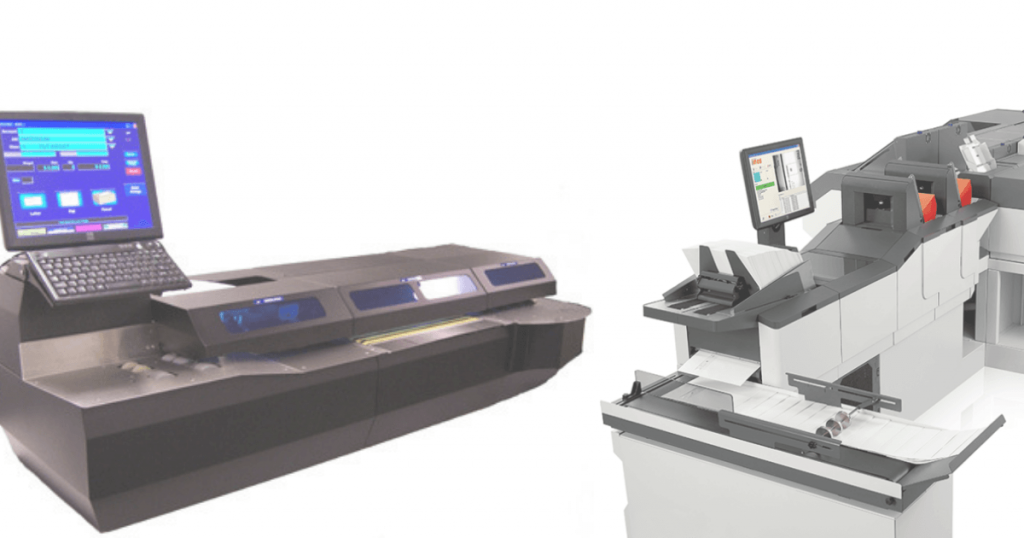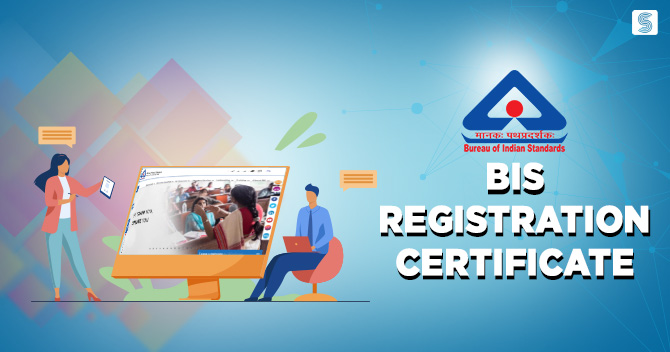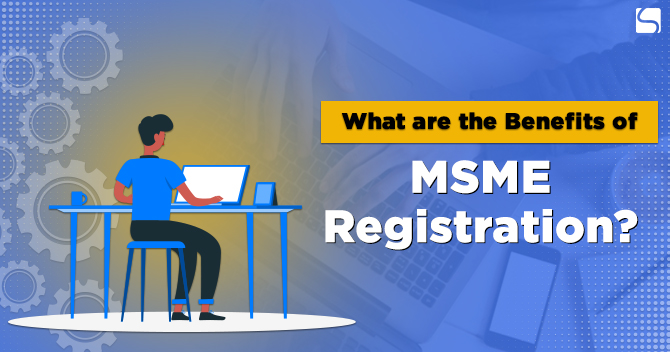Why is BIS Certification for Mail Processing Machines required?

Swarit Advisors | Updated: Mar 16, 2019 | Category: BIS, Government
Nowadays, the first and most important things people look for in any product are its authenticities and high quality. Rest of the criteria are secondary. Hence, to ensure the product holds a certain standard and has impeccable quality, BIS certification is a must-have thing. Therefore, if you deal in Mail Processing Machines or Postage Machines or Franking Machines, you are advised to acquire BIS certification for mail processing machines as soon as possible.
Before we proceed, let us gain some knowledge of mail processing machines.
Table of Contents
What are Mail Processing Machines?
Mail processing machines are devices used to distribute incoming and outgoing emails. Moreover, such devices are meant to examine, sort, and route mails according to their destinations.
Mainly, the first mail sorter or processing machine was brought in the US postal services to handle the increasing volumes of mail and was used in the year 1920. Later on, the technology expanded to a large scale and is now used worldwide.
Therefore, if you are dealing with such devices, then you should mandatorily obtain BIS certification for mail processing machines.
What are the objectives of establishing BIS?
Typcially, BIS was established to fulfil the following objectives –
- To formulate standards for products manufactured and sold in India. Today there are about 20,000 Indian standards operational in the country pertaining to different sectors and industries.
- To provide BIS registration and ISI registration to manufacturers for products under voluntary registration and the Compulsory Registration Scheme (CRS).
- To establish different management systems and provide certification to organisations that implements such management systems.
The Indian Standards Act, 2016 replaced the BIS Act of 1986 with additional objectives of –
- Making it easy for Indian and foreign manufacturers to do business in India.
- To enforce the Make in Indian project so that both Indian and foreign manufacturers get equal opportunity to manufacture goods within the country.
- To ensure that the Indian public gets to buy and use standardized and good quality products that is safe and reliable for consumption.
Is it obligatory to obtain BIS certification under CRS?
In India, manufacturers can get their products voluntarily registered with BIS. The reason behind getting their goods BIS registration is that it acts as proof and authentication of the high standards of quality of their product. It helps build brand equity and trust.
However, there are about 185 products where the concerned Ministries have made it mandatory for the manufacturers to obtain BIS registration or ISI certification before the products are sold, distributed, stored for sale, exported or imported in India. The Compulsory Registration Scheme is operational under Chapter IVA of BIS Rules, 1987. It has two distinct parts to it –
1. Scheme – I
This scheme is also called the ISI Mark Scheme – this scheme was introduced when the Indian Standards Institute (ISI) was operational. As on date, there are 136 products classified under various categories where the manufacturer – Indian or foreigner – needs to get the ISI Registration before launching the product commercially for consumption by end consumers. The broad product categories are –
- Cement (13 products),
- Electrical household goods (15 products),
- Batteries (1 product),
- Food & related products (15 products),
- Oil pressure stove (3 products),
- Automobile accessories (4 products),
- Cylinders, valve and regulation (15 products),
- Medical devices (3 products),
- Steel products (58 products),
- Electrical motors (2 products),
- Capacitors (3 products),
- Chemicals and fertilizers (1 product)
- Kitchen appliances (2 products), and
- Domestic Water Heaters for use with LPG (1 product).
Manufacturers need to apply for ISI registration along with the required ISI certification costs. The process of obtaining the ISI certification takes anywhere from 4 months to 6 months where the manufacturer has to follow specified steps before his product gets certified. Nowadays there is the simplified process too that takes about a month to get the certificate.
2. Scheme – II
This scheme was also known as the Registration Scheme. This scheme had its birth in 2012 when the Ministry of Electronics and Information Technology set aside 15 products which needed to be mandatorily certified by the Bureau before being launched in the market. The rule applied to Indian as well as foreign manufacturers. As on date, there are 43 electronic and IT products and about 6 solar photovoltaic products and components identified by the Ministry of New and Renewal Energy that need the mandatory certification before sale or distribution in the market.
The ISI Certification number and the BIS Registration number is a unique number that holds information about
- The manufacture,
- Location of the production unit,
- The brand name, and
- The product type.
Today we will discuss the BIS certification process in detail for the following two products –
| S. No. | Product |
| 1. | MAIL PROCESSING MACHINES/POSTAGE MACHINES/FRANKING MACHINES |
| 2. | POWER BANKS FOR USE IN PORTABLE APPLICATIONS |
Product Description
Both the products mentioned above are covered by the Indian Standard IS 13252(Part 1):2010* also known as the Information Technology Equipment – Safety. The scope of this IS covers mains-powered and battery-powered IT equipment that includes electric business equipment where the rated voltage does not exceed 600 Volts. The Indian Standard aims at making electrical and electronic products hazard free – the possible causes of hazards for such devices include fire, electric shocks, radiation and chemical, heat and mechanical injuries that can be inflicted upon the end-user and the serviceman of the devices.
Procedure of BIS Certification for Mail Processing Machines
There are distinct steps that the manufacturer needs to go through in order to get his product registered with BIS before selling in the consumer market. Here we are providing a synopsis of how to get the product certified by BIS though it is best advisable to take help from BIS certification consultants who are experts in the field. This is primarily due to two reasons –
1. Because BIS certification requires detailed paperwork and documentation. Documents that are required to be submitted need to be prepared as per BIS guidelines. In case any document is missing, the process is liable to get delayed.
2. Because the certification process involves categorical steps that need to be followed with precision. Missing any key step can result in delaying the process of obtaining certification.
These external BIS certifying agents charge quite nominally for their consultancy service (details of consultancy fee has been mentioned below) and there are only selected few in the market today who have the expertise and can provide complete support during the BIS registration process.
Click here for BIS certification for Electronics Clocks.
The steps for BIS certification include –
Sample testing and procuring the test report
The first step to BIS certification for mail processing machines involves sending a sample of the product to a BIS approved lab for testing. The lab conducts all relevant tests on the sample to ensure that it matches up and conforms to the IS 13252(Part 1):2010*. After the test is completed, the lab generates a test report. In order to get the above-mentioned products tested at a BIS recognised lab, the testing fee is as below:-
| S. No. | Product | Testing Fee (Rs.) |
| (i) | MAIL PROCESSING MACHINES/POSTAGE MACHINES/FRANKING MACHINES | 40,000/- |
| (II) | POWER BANKS FOR USE IN PORTABLE APPLICATIONS | 40,000/- |
Filling up the application form online
Under the Digital India movement, the government has facilitated online filing up of application forms for obtaining all major official certifications. For BIS certification, the applicant needs to first register. After registration, the Form VI needs to be filled up and submitted online along with the signature of the applicant or the manufacturer.
Submit the BIS certification costs
Applicants can choose to submit the requisite government fees either through Demand Draft or through NEFT. The registration fees for the above-mentioned products are:-
| S. No. | Product | Testing Fee (Rs.) |
| (i) | MAIL PROCESSING MACHINES/POSTAGE MACHINES/FRANKING MACHINES | 53,000/- |
| (II) | POWER BANKS FOR USE IN PORTABLE APPLICATIONS | 53,000/- |
- Upload all relevant documents as per laid down rules of BIS. The list of documents required has been mentioned in the next section.
- After the online submission process is completed, the applicant now needs to send the hard copies of the Form, the documents uploaded and the test report to the BIS headquarters within 15 days of uploading online. In case the hard copy fails to reach within the stipulated 15 days, the application is considered closed by BIS.
- Once the hard copy reaches, the concerned department at the Bureau starts investigating and scrutinizing the application in detail. Remember the BIS handles all applications on a first-come, first basis.
- During the above process, BIS officials might ask for additional documents or have queries related to the product, manufacturing process etc. which the applicant needs to answer back online on an immediate basis. There could be certain shortcomings in the application that the BIS may point out and the applicant needs to ensure that such shortcomings are completed on urgent basis. Delay on the part of the applicant will only cause the delay in getting the product certified.
- The certification is awarded only when BIS officials are satisfied with the documentation, the answers to queries and when every other requirement is in place. The status is uploaded online for the manufacturer to check. Once you have received the certification for mail processing machines or franking machines[1], you can unhesitatingly continue with your business.
Documents required for BIS registration
- Form VI completed and duly signed by the manufacturer/the applicant or his appointed representative.
- Original Test reports that are not older than 90 days at the time of applying for BIS registration. Along with the report, an undertaking duly signed by the manufacturer or his representative needs to be submitted.
- Photocopy of the business license.
- Trademark registration photocopy in case the brand has been registered for a trademark. In case not, the application for Trademark registration needs to be submitted.
- Undertaking for IS 13252 (Part 1): 2010* amendment.
- Authorization letter from the brand owner/manufacturer in case the application is signed on his behalf by an authorized representative
- Under the Foreign Manufacturers Certification Scheme, overseas manufacturers need to appoint an Authorized Indian Representative (AIR). Details regarding the appointment need to be submitted along with the Company registration certificate.
- (i) Indian manufacturers need to submit an affidavit as per Format C signed by the MD/CEO of the company. In case the affidavit is signed by an authorized person, the ID proof of the signatory needs to be submitted too.
(ii) For overseas manufacturers, an affidavit cum undertaking as per Format A or Format B needs to be submitted, whichever is applicable. This needs to be signed by the CEO or the MD of the registered company or liaison office. In case it is signed by an authorised signatory, ID proof of the person needs to be submitted too.
Frequently Asked Questions
1. What are the consultancy fees charged by BIS certification consultants?
Professional and experienced BIS certification agents charge about Rs. 25000/- for per product registration with BIS.
2. What is the Standard Mark and are there any guidelines regarding the same?
The Standard Mark needs to be printed or embossed on the product and its packaging after product certification. The mark is made up of three components and is mandatory. There are certain specific rules regarding the same –
- The logo or the monogram can be enlarged or reduced in size.
- The mark can be in single or multiple colours. The multi-colour scheme has been described by BIS online at its official site and manufacturers need to stick to the same.
- Instead of the Standard Mark, manufacturers can alternatively use the words, “Self-declaration-conforming to IS (Number)” on the product and the packaging.
- BIS Registration number and the IS Number needs to be mentioned clearly alongside.
- The standard mark should be of such quality that it can neither be rubbed off nor washed off. It should be legible and visible at all times.
3. Are scanned and stamped hard copies accepted by BIS?
No. BIS is very strict about this particular aspect. The application is not considered valid if it has been signature stamped. Similarly, scanned signature copies are not accepted by BIS. At all times, the application needs to be signed in ink in original by the applicant and bear the stamp of the manufacturer.
4. How long does this entire registration process take?
Provided all required documents are in order and all necessary steps have been followed, it should not take more than 20 days to obtain the registration number. However, in case of shortcomings or documents missing, the time gets extended. It is the responsibility of the applicant to ensure that all papers are in order so that he is able to procure the registration in the shortest possible time.
5. Is the BIS certificate valid for a lifetime?
No. The certificate has a validity of two years from the date of issue. It needs to be renewed after every two years. The renewal process typically should be started well in advance so that the new registration is obtained before the expiry of the old one.
If you still have doubts regarding the BIS certification for Mail Processing Machines, contact us. At Swarit Advisors, one of the leading management consultants in India, you can get help, support and guidance to complete the BIS Registration process in no time and at a very nominal charge.
Also, Read: How to Obtain BIS Certification for Electronics Clock in India














